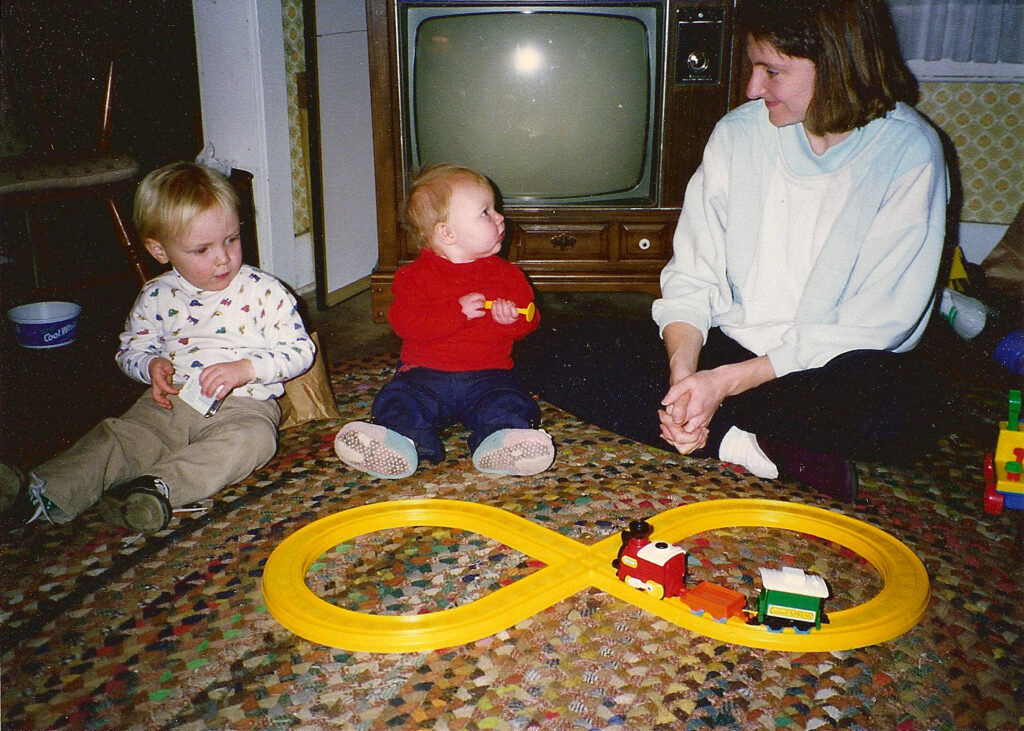Patients admitted into a hospice program have been diagnosed with a terminal illness. Palliative care to make the patient comfortable then replaces curative treatment. As we neared the time for Cindy to come off hospice, my efforts to maximize her quality of life conflicted at times with the views of nurses and aides regarding her palliative care.
Cindy the hiker weighed around 115-120 pounds; Cindy the mother at her heaviest weighed around 135-140 pounds. Her weight while in this final stage of dementia must be well under a hundred. Though measurement on a scale is no longer possible, the hospice nurse has inferred her weight loss for the past few years from the shrinking measurement of her biceps. That was the last indicator of decline being used to justify keeping Cindy in hospice.
As Cindy’s emaciation became the reason for keeping her in hospice I responded by inserting more calories in her diet. We basically eat the same foods (admittedly, I take bigger bites), with my brain health soup and brain health smoothie serving as our main staple. To Cindy’s daily diet alone I added a granola bar, fruit bar and Ensure. That apparently did the trick of halting her shrinking biceps and there was no longer any measurable justification for keeping her in hospice.
This feeding strategy for Cindy was questioned based on her occasional coughing fits. Since people advanced in dementia are supposed to lose the interest and ability to eat; there was concern I might be force feeding Cindy, which would be against the spirit of palliative care. However, I experienced what a person with advanced dementia refusing to eat was like with my Mom and I rely on this memory to determine when Cindy has given up eating and by extension the will to live. I have not detected that happening yet.
I spend 3 ½ – 4 hours each day feeding Cindy as her focus on eating declines. Adding extra calories to her diet added to this time burden from feeding her. The quality nutrition of her preexisting diet contributed to her will to live for so long, I do not believe the added calories does anything to further that. Ironically, now that Cindy is out of hospice I am shifting back to her original, high nutrition diet.
I share this to emphasize what is important in your loved one’s diet. I know the nutritional content of Meals on Wheels and other diets for the disabled or elderly. They claim to be nutritious while at the same time being convenient to prepare or eat. This is an accurate claim when compared to any fast food diet, but not in comparison to ours. Our diet is my own concoction based on brain health research, but perhaps most closely resembles the well known Mediterranean diet.
Another important element of our diet is food that requires chewing. The importance of mastication for brain health has been researched, but seemingly counters the spirit of palliative care. When a new nurse came to examine Cindy for admittance into a different program, she assumed with obviously no doubt in her mind that I fed my patient pureed foods. Cindy can chew and should chew food as long as possible. The extra comfort for patients, and ease for caregivers or nursing homes, of feeding only foods to sip and swallow erodes quality of life faster.
I recommend highly nutritious and chewable food for quality of life care, as opposed to palliative care, when feeding a loved one. If you can add high caloric intake without sacrificing nutrition all the better, though with my time already spent feeding this is where I have drawn the line.
Please subscribe to be alerted for other examples of quality of life care conflicting with palliative care.


Thank you for sharing your experience and research. It makes a lot of sense and I will remember this idea should I become a caretaker.
Beautiful picture Kirk!
Bravo, Kirk. I am not surprised.
I understand that exhaustion for you is an issue.
I do believe that you could do no less.
Are others helping you?
Thanks for that
Kirk – This seems very well thought-out and researched. My visit with you at you at your home coincided with feeding time for Cindy, and this helped me to understand the principles you elucidate and the points you make in the article.
Bill